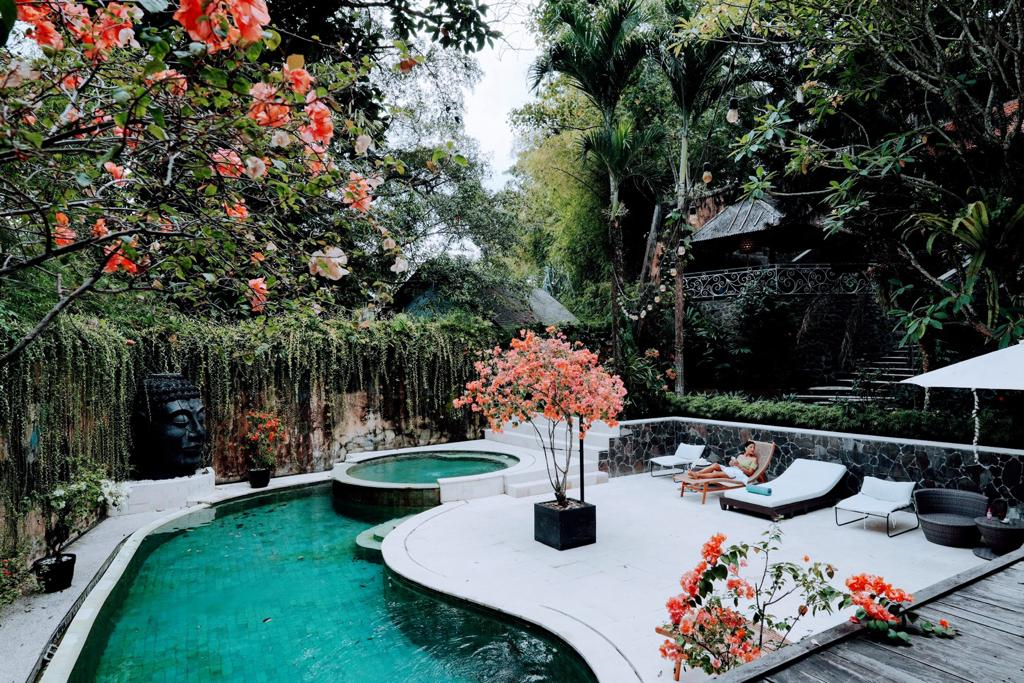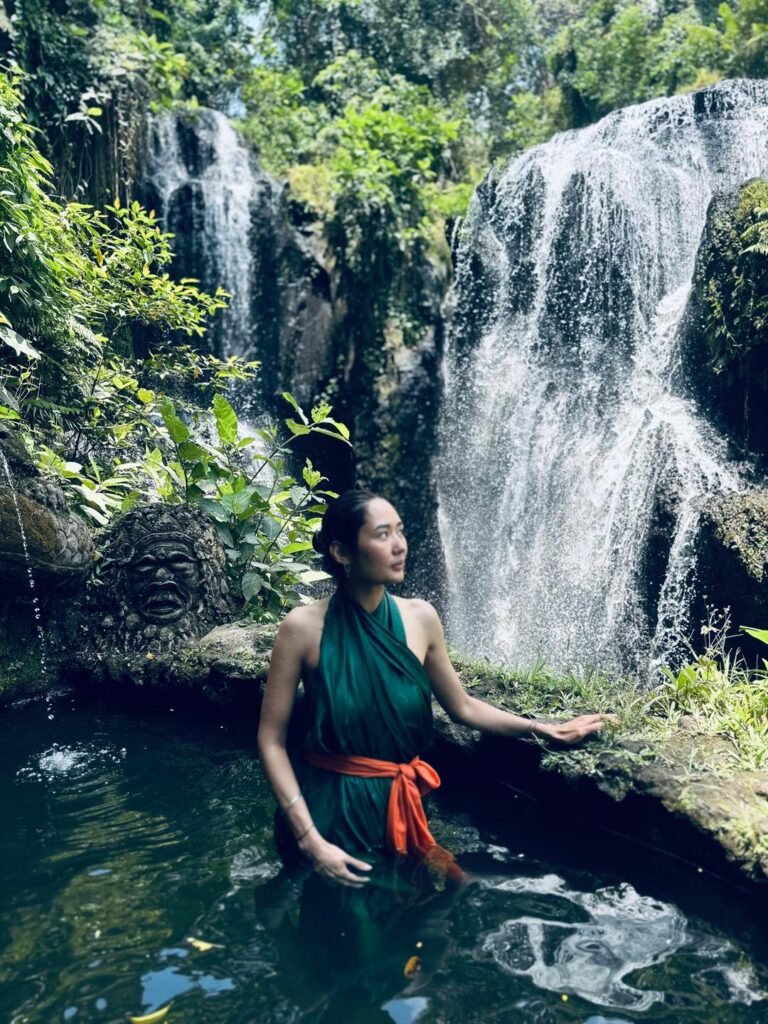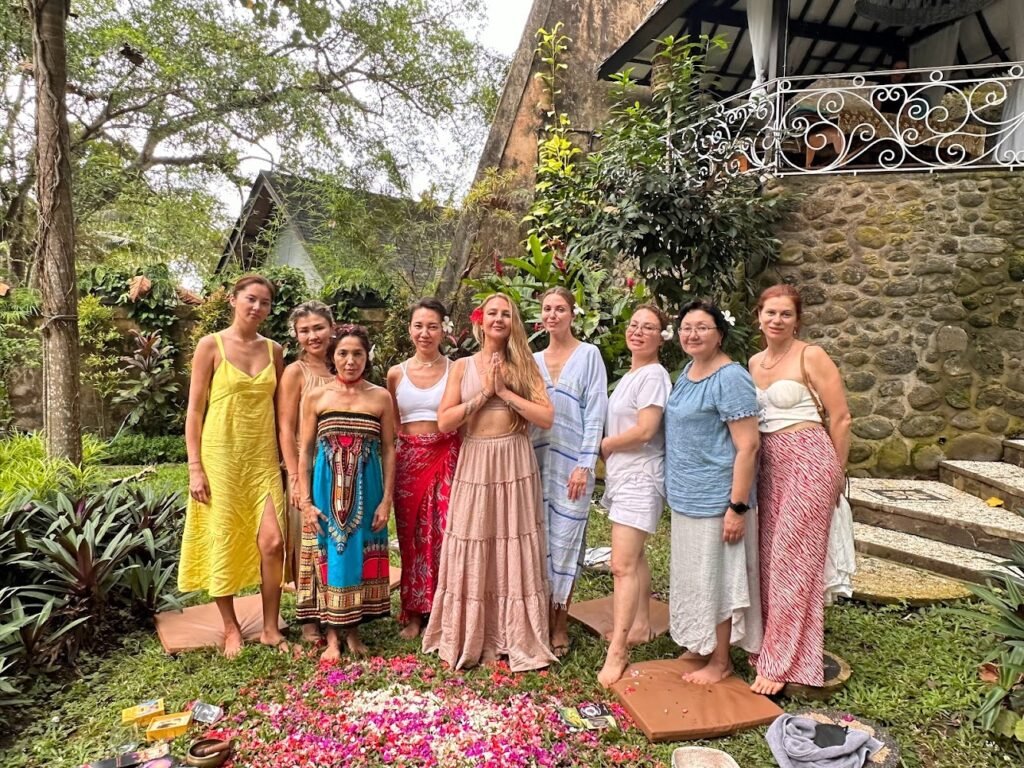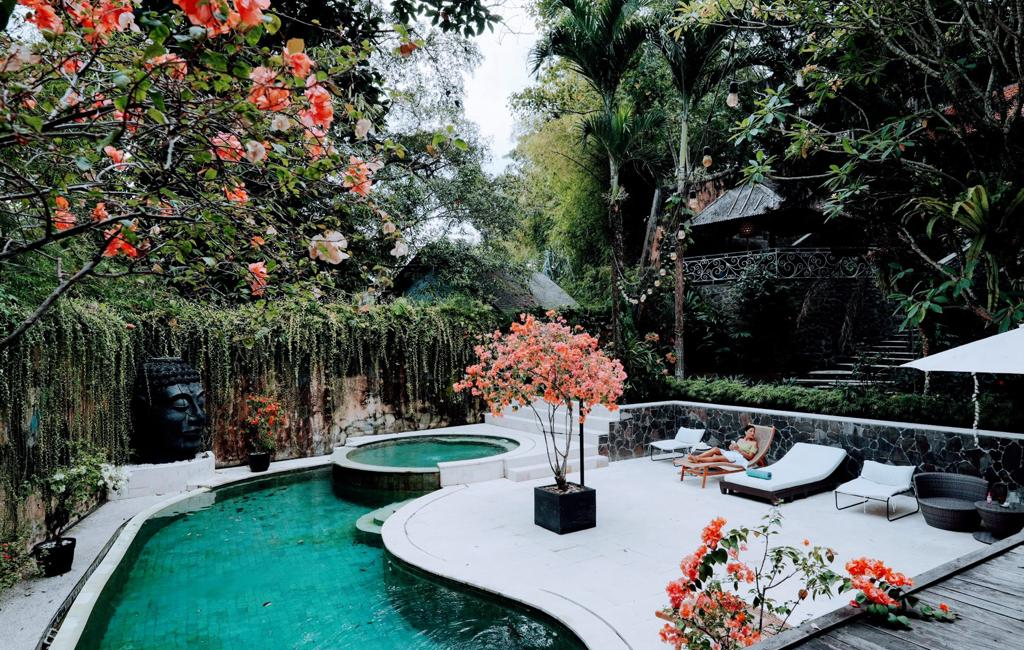A retreat tour is a great way to get away from the hustle and bustle and get to know yourself better. We offer you a new approach to traveling. Here you will find time for self-discovery and meeting your “I”. In nature, away from the noise, you can find peace and find answers to important questions.
On retreats you can develop personally and find harmony. Secluded vacations in beautiful places are ideal for meditation and spiritual practices. It is becoming increasingly popular among those who are looking for something new.

Spiritual journeys are not just vacations. It's an opportunity to deeply change yourself. On a retreat you will disconnect from everything, calm your mind and heart. It is a chance to change your beliefs and open new horizons for growth.
Key points
- A retreat tour is a journey for self-discovery and inner growth
- A secluded vacation helps you disconnect from your daily routine
- Personal growth programs are an integral part of retreats
- Spiritual journeys contribute to profound personal transformation
- Retreats are held in scenic locations close to nature
- Meditation and other spiritual practices are practiced on retreats
The history and origins of retreats
The history of retreats goes back to ancient times. These practices of self-discovery and spiritual growth have been around for thousands of years. From Vedic rituals to the asceticism of Slavic monks, retreats have always been part of human culture.
The origin of retreats is closely linked to Buddhist practices. It is believed that Siddhartha Gautama, known as the Buddha, was the first to experience it. He withdrew from the world for the sake of self-knowledge and enlightenment.
A retreat is a journey inside yourself, a chance to stop and listen to your inner voice.
Buddhist practices have become the basis for many modern forms of retreats. They include meditation, silence and contemplation. These practices help to clear the mind of unnecessary thoughts and achieve deep self-knowledge.
The concept of a retreat has evolved over time. Today we see a variety of forms, from yoga retreats to creative workshops. But the essence remains the same - it is a time dedicated to self, development and restoration.
What is a retreat tour
Retreat tours are becoming increasingly popular among those who want to find themselves and relax from the everyday hustle and bustle. Let's find out what these trips are and how they differ from ordinary vacations.
Definition and concept of retreat tours
Retreats are designed to take a deep dive into yourself. It is a journey aimed at restoring inner balance and gaining new strength. They take place in a quiet environment, away from the city, so that participants can focus on their inner world.
The difference between retreats and regular vacations
The main difference between retreats and ordinary vacations is that we work on ourselves. On a regular vacation, we usually want to have fun and distract ourselves. On a retreat, we immerse ourselves in practices and activities that help us grow personally. There is no room for entertainment, but there is an opportunity to hear ourselves.
Goals and objectives of retreat tours
The objectives of retreat tours are varied and depend on the program. The main objectives include:
- Calming the mind and relieving stress
- Finding inner harmony
- Rethinking life values
- Search for new ways of development
- Improved physical and emotional well-being
Each participant can find their own path to self-discovery and growth, discovering new facets of their personality.
Types of retreats
Retreats come in many forms, and everyone will find something to their liking. We will tell you about the most popular types. This will help you choose the right one for you.
Yoga retreats
Yoga retreats are an immersion into the world of asana and meditation. Here you will strengthen your body and purify your mind. The program includes morning and evening practices, healthy meals and outdoor recreation.
Meditation retreats
Meditation retreats are all about silence and contemplation. You will learn to control your attention and find inner peace. The retreats are held in complete silence, which helps you to go deeper into yourself.
Spiritual retreats
Spiritual retreats focus on finding meaning and purpose in life. They include practices from different traditions, discussions with mentors, and time for self-reflection.
Creative retreats
Creative retreats help you unleash your creativity. It can be painting, writing, dancing or music. Here you will disconnect from everyday life and let your imagination run wild.
Each type of retreat is unique, but they all help you renew yourself and look at life in a new way. Choose the one closest to your heart and embark on a journey of discovery.
Benefits of retreats for psychological and physical health
Retreats are essential to our well-being. They help to restore inner balance and reduce stress. They also help us to become clearer in our thoughts.
At the retreat we learn how to manage our emotions. Meditation and yoga help us to understand ourselves better. It improves self-esteem and mood.
The physical condition also improves on retreat. Yoga, hiking and proper nutrition strengthens the body. It increases our energy.
“The retreat helped me find inner harmony and energize myself. I feel renewed and ready for new accomplishments,” shares Anna, a participant of the yoga retreat.
The main benefits of retreats:
| Mental health | Physical health | Emotional state |
|---|---|---|
| Reducing stress levels | Immunity enhancement | Increasing emotional resilience |
| Improved concentration | Sleep normalization | Developing empathy |
| Improved self-esteem | Improved posture | Reduced anxiety |
Retreats create the perfect environment to work on ourselves. Away from the hustle and bustle, we can focus on ourselves. This helps to improve health and life.
How to choose the right retreat tour
Choosing a retreat tour is an important step towards self-discovery and relaxation. We'll show you how to find the perfect retreat for your personal goals and preferences.
Consideration of personal goals and preferences
When choosing a retreat tour, it's important to define your goals. Do you want to immerse yourself in meditation, practice yoga, or simply take a break from the hustle and bustle? Answering these questions will help you narrow your search and find the right fit.
Evaluation of the program and duration
Study the retreat program. Make sure the schedule fits your needs. Evaluate the density of the sessions and the availability of free time for rest and reflection. The duration of the tour is also important - choose the period that works best for you.
Choice of location and living conditions
The location of the retreat affects the overall experience. Choose a place that inspires you. Mountains, sea or forest - each landscape creates a special atmosphere. Don't forget to evaluate the accommodations - they should be comfortable for you.
| Criterion | What to look out for |
|---|---|
| Personal goals | Meditation, yoga, creativity, relaxation |
| Program | Schedule, intensity, free time |
| Duration | Weekend, week, month |
| Location | Nature, climate, remoteness |
| Accommodation | Level of comfort, food, amenities |
By considering these factors, you will be able to choose a retreat tour that fully meets your expectations and needs. Remember, making the right choice is the key to an unforgettable experience and profound transformation.
Popular destinations for retreat tours
Retreats offer a unique opportunity to immerse yourself in an atmosphere of tranquility and self-discovery. We will tell you about the most popular retreat destinations that attract travelers from all over the world.

Bali is a paradise for lovers of yoga and meditation. The island attracts with its picturesque landscapes, rich culture and spiritual traditions. There are retreats to suit all tastes, from intensive practices to relaxing programs.
India, the cradle of spiritual practices, attracts those seeking a deep dive into philosophy and tradition. Rishikesh and Goa are popular destinations for yoga retreats, where you can learn different styles and techniques under the guidance of experienced masters.
The choice of retreat location depends on your goals and preferences. Some centers organize expeditions to exotic places such as Mongolia or Indonesia, which allows you to combine spiritual practices with exciting adventures.
What is included in the cost of the retreat
When planning a retreat, it is important to understand what the cost of the retreat consists of. We will look at the main components that are usually included in the price. This will help you evaluate the offers and choose the best option.
Accommodation and meals
The cost of a retreat almost always includes accommodation and meals. It can be a comfortable hotel or a cozy eco-house. Meals are usually three meals a day, often vegetarian or vegan, taking into account the peculiarities of the practices.
Practices and master classes
Practices and workshops form the core of the retreat. The price includes yoga, meditation, self-development workshops. The number and intensity depend on the program.
Additional services
Many organizers include airport transfers in the price of the retreat. Some offer excursions, outdoor activities or spa treatments for an additional fee.
| Service | Included in the basic price | Additional payment |
|---|---|---|
| Accommodation | Yes | — |
| Nutrition | Yes | — |
| Practitioners | Yes | — |
| Transfer | Yes | — |
| Excursions | Rarely | Usually |
When choosing a retreat, pay attention to the value for money. Compare programs and clarify what is included in the price. This will help to avoid unexpected expenses.
Preparing for a retreat: what you need to know
Preparing for a retreat is a key step for success. We will share tips on how to set up and what to bring with you. This will help you get the most out of the retreat.
It is important to prepare yourself psychologically. Give up habits and open yourself to new things. Meditation and reading retreat literature will help you.
A list of things to do for the retreat:
- Comfortable clothes for practicing
- Personal care products
- A notebook and a pen for taking notes
- Yoga or meditation mat
- Water flask
Study the retreat program in advance. This will help you prepare and take the right things. Remember, the retreat is a time for self-discovery.
| Training aspect | Recommendations |
|---|---|
| Physical | Light exercise, healthy eating |
| Psychological | Meditation, reading |
| Organizational | Study the program, get things ready |
Good preparation for the retreat will help you enjoy the process. You will get the most out of this unique experience.
Retreats for beginners: where to start
The first retreat can cause excitement and uncertainty. We have prepared recommendations to help newcomers make the right choice and get the most out of the experience.
Choosing a program for beginners is key. We recommend starting with soft programs that include basic meditation and yoga practices. This will allow you to gradually immerse yourself in the atmosphere of the retreat and not overload yourself.
The duration of the first retreat is also important. The optimal option is 3-5 days. Such a period will allow you to feel the effect, but will not cause discomfort from a long stay in an unfamiliar environment.
Experienced instructors are another factor in a successful first retreat. They will help you understand the practices, answer questions and provide the necessary support.
My first retreat lasted 3 days. It was the perfect time to familiarize myself with the practices and see if this retreat format was right for me.
Retreats for beginners are often held in picturesque locations with comfortable accommodations. It helps to focus on the practices and not be distracted by everyday inconveniences.
| Criterion | Recommendations for beginners |
|---|---|
| Duration | 3-5 days |
| Program | Soft, with basic practices |
| Instructors | Experienced, willing to support |
| Venue | Comfortable, scenic |
Remember that the first retreat is a step towards self-discovery and inner development. Do not set high expectations for yourself. Just enjoy the process and be open to new experiences.
Retreats for advanced practitioners
Advanced Retreats are the next stage of development. They are designed for those who have already tried such retreats and want more. These programs are serious tests for the mind and body.
Vipassana is a popular type of retreat for experienced practitioners. For 10 days, participants meditate in complete silence. This helps to clear the mind of negativity.
Intensive programs include:
- Long meditation sessions (up to 12 hours per day)
- Difficult yoga asanas
- Silence practices (a few days to a week)
- Intensive breathing techniques
- In-depth study of philosophical texts
These retreats require preparation and self-discipline. They help you reach new levels of self-awareness. But they are not for everyone, especially not for beginners.
“An advanced retreat is not a vacation, but a work in progress. But the results are worth all the effort.”
When choosing a retreat, it is important to consider your experience and condition. It is best to consult with an experienced instructor. He or she will help you determine your readiness for such a retreat.
Organizing retreats: an inside look
Organizing retreats is a complex process. It requires attention to detail and an understanding of the needs of the participants. We will explain how to create an atmosphere for transformation and growth.
Role of trainers and mentors
The role of instructors in retreats is very important. They not only lead the practices but also create a safe space for self-discovery. Experienced facilitators tailor the program to the needs of the group.
Program formation
Creating a retreat program is an art of balance. We take into account goals, fitness level and time of year. The program includes practices, lectures and time for relaxation. We adapt the program as the retreat progresses.
Creating an atmosphere
The atmosphere of the retreat is very important. We choose the location carefully, taking into account the nature and comfort of the participants. Creating a trusting environment helps guests to relax and immerse themselves in the practices.
Organizing retreats requires love for the business and attention to detail. From choosing instructors to designing menus, every element is important. This creates an unforgettable transformational experience.
Personal experience of retreat participants
We have collected retreat reviews from real participants. They have shared their personal experiences and impressions. Many of them noted deep inner changes after the retreat.

Elena, 34, recounts: “The yoga retreat in the mountains was a real revelation for me. Within a week I felt my stress and anxiety go away. I felt a sense of inner harmony and clarity of thoughts.
Maria, 22, shares her impressions of the meditation retreat: “It was a challenge to myself. Seven days of silence and meditation led to a real transformation of consciousness. I had a new perspective on my life and values.
“The Creative Retreat helped me to unlock my potential. I found inspiration and new ideas for work. It is a truly life-changing experience,” - Anna, 28 years old.
Participants report improved emotional well-being. They have found new goals and rethink their life priorities. Retreats provide an opportunity to disconnect from everyday life and focus on the inner world.
Everyone's personal experience is unique, but all agree on one thing: retreats are a powerful tool for self-development and renewal.
The impact of retreats on daily life
Retreats leave a deep mark on the lives of participants. People return home with a new way of looking at the world. This impact extends to everyday life.
Many people notice changes after the retreat. They start practicing meditation and yoga. This helps them to remain calm under stress.
Retreats promote personal growth. People reassess values and find new hobbies. This improves relationships and productivity at work.
“The retreat helped me realize what is really important. Now I start every day with meditation and feel much calmer”
The impact of retreats on the lives of participants can be seen in several ways:
- Increased mindfulness in daily activities
- Improvement of emotional state
- A healthier lifestyle
- Unleashing creativity
Retreats teach you to be more attentive to yourself and others. It helps to cope with the challenges of life and to find harmony every day.
How to maintain the effects of the retreat after returning home
Returning home after a retreat can be challenging. We often wonder how to maintain the amazing effect we have had. The main secret is to integrate the practices into our daily lives. Start by setting aside time for meditation and yoga every day, even if it's only 10-15 minutes.
Maintaining mindfulness is key to maintaining the retreat's effects. Try to be mindful of your thoughts and actions throughout the day. This will help you stay in the state of peace and balance that you found on the retreat. Don't forget about breathing techniques - they are a great way to help manage stress.
It is important to keep in touch with like-minded people. Attend themed events, socialize with people who share your interests. This will help you stay motivated and continue on your path of development. And from time to time, organize mini-retreats at home - this is a great way to refresh your knowledge and skills.
FAQ
What is a retreat tour?
Retreat is a unique way of vacation. It helps you to focus on yourself and your feelings. It is an opportunity to find yourself in solitude and through self-discovery practices.
What is the difference between retreats and regular vacations?
Retreats are different from ordinary vacations. They require giving up comforts to immerse oneself. The goal is to calm the mind, find harmony and redefine values.
What are the different types of retreats?
There are different types of retreats. For example, yoga retreats, meditation retreats, spiritual retreats and creative retreats. Each type is aimed at achieving certain goals.
What are the health benefits of retreats?
Retreats improve mental and physical health. They help stabilize emotions, clear the mind and reduce stress. They also strengthen vital energy.
How do you choose the right retreat tour?
When choosing a retreat tour, it is important to consider your goals and preferences. Evaluate the program and duration. Choose a suitable location and accommodation.
.What are the popular destinations for retreat tours?
Popular destinations include Bali, India, Altai, and the Moscow region. Retreats in Crimea, Karelia, Buryatia and the Tver region are also in demand.
What is included in the cost of the retreat?
Retreats include accommodation, meals, practices and workshops. Sometimes transfers and extras such as excursions or diving are included.
How do you prepare for a retreat?
Preparing for the retreat includes a physical and psychological component. Familiarize yourself with the program and prepare the necessary things. Set yourself up to give up your comforts.
Where do newcomers to retreats start?
Beginners are advised to choose retreats with a gentle program. Include basic practices of meditation and yoga. Start with short programs and gradually increase the duration.
What are retreats for advanced practitioners?
There are intensive programs for advanced practitioners. They include long meditations, challenging asanas and silent practices. Vipassana courses in complete silence are popular.
What personal experiences do retreat participants have?
Retreat participants often report profound changes. They experience a reduction in stress and a redefinition of values. Some describe the experience as transformational and life-changing.
How do you keep the effects of the retreat in your daily life?
To maintain the effects, it is important to integrate practices into your daily routine. Make time for meditation and yoga. Keep in touch with like-minded people and organize mini-retreats at home.
What is a retreat?
Answer: A retreat is a retreat from ordinary life for the purpose of self-discovery, self-work and practice, such as yoga or meditation.
What kind of retreats are there?
Answer: There are different types of retreats such as yoga retreats, meditation retreats, retreats in monasteries, nature retreats and others.
How do you choose a retreat center?
Answer: When choosing a retreat center, it is important to consider its location, program of classes, accommodations, and reviews from other travelers.
How often should you go on a retreat?
Answer: The frequency of attending retreats can vary depending on each person's needs and goals. Some people prefer to do it annually, others prefer to do it as needed.




